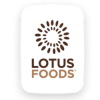As the food industry looks to address sustainability issues and changing consumer tastes, new startups are showing up with alternative visions for how companies can grow, manufacture and sell their products. These startups are taking concerns over health practices, waste and carbon emissions to heart, in some cases they are gaining traction.
We’ve compiled a list of five food startups to watch throughout the next year. Some have big-name investors; others built themselves purely through crowdfunding projects. But they are all looking to do business in different ways, and their visions have to potential to disrupt existing markets.
1. AMBRO

What it does: Liquid food is alive and well for Ambro, a startup with a product aimed at becoming a complete nutritional source for busy professionals. Ambro is a drinkable meal with a two-minute prep time made from organic sources including whey protein, quinoa, whole grain rice, nuts, cocoa, and berries. The founders propose using it as a healthy meal enhancement, though, rather than a total replacement every day.
What to watch: Ambro was inspired by Silicon Valley based-Soylent, which makes a popular liquid meal replacement made from nutritional chemical powders. Ambro Cofounder Simo Suihimo has said he used the “same pieces of puzzle from a different viewpoint”—that is, organic, natural ingredients. Expect to see the Finnish company begin shipping globally in January 2014.

What it does: With a mission to move the world away from animal-based diets, Hampton Creek Foods, founded in 2011, created Beyond Eggs, products made with egg substitutes to help reduce meat and dairy intake and give food scientists a healthy, humane alternative. The company has also created a condiment, Just Mayo, which opened up a door for distribution at Whole Foods.
What to watch: An egg-free cookie dough will appear in stores in February, and the company is currently working on a formula to mimic scrambled eggs. Bill Gates, Peter Thiel’s Founder’s Fund, Khosla Ventures, and a few other environmentally conscious billionaires have contributed to this startup, and it is rumored Al Gore is interested as well. Forbes reports the egg substitute costs 39 cents a pound, which is half the cost of chicken eggs, and it has a fraction of the energy output. The corporate egg industry may have a rival in the near future.
3. KULI KULI

What it does: This gluten-free, vegan bar has a superfood ingredient in moringa, a nutrient-rich powder that comes from the leaves of specific trees in Africa. The founder, Lisa Curtis, fell ill from malnutrition in Nigeria. The women in her village made a meal with moringa, which helped Curtis regain her strength. She returned to the U.S. and created Kuli Kuli, which raised $50,000 since May 2013 through crowdfunding.
What to watch: In the competitive nutrition bar market, Kuli Kuli has managed to stand out because of its backstory and international partnership. The brand purchases moringa from women’s cooperatives in West Africa to create demand for a product that the region is able to supply. It’s about employing women and empowering communities, rather than just feeding the hungry. Kuli Kuli is available in Northern California Whole Foods, but plans to expand this year.
4. OSTARA

What it does: Sewage and wastewater are the key words for this agriculture startup. Most recently, Vancouver-based Ostara is harvesting phosphorous at a wastewater treatment plant in the United Kingdom. Through a chemical process, the system extracts human waste and the accompanying odors from the ammonia and phosphorous. It creates crystals that Ostara sells to fertilizer companies, who blend them with nutrients for fertilizer sale.
What to watch: Mined phosphate is slowly running out, which is the reason Ostara started this venture. This process recovers up to 30 percent of phosphorous in sewage that would otherwise be lost. Six plants have been installed in the U.S. and Canada, the latest in Madison, Wis. That plant is eight times larger than the UK one. Ostara is acquiring a long list of investors, having raised $35 million in venture capital since 2005.
5. HARVESTER

What it does: America’s massive amount of food waste—36 million tons in 2011, according to the EPA—inspired two Microsoft employees to create WISErg in 2012. Restaurants and groceries can install the company’s Harvester machine, which grinds up to 4,000 lbs. of food scraps per day and turns them into a nutrient-rich liquid that is later refined into a fertilizer off-site. The technology also tracks the weight and type of scraps, helping businesses better manage their inventory.
What to watch: Wiserganic, the resulting fertilizer, is certified for use in organic agriculture in Washington, and the company plans to expand. The Harvester can process more types of scraps than traditional composting, including meat, bones, seafood, and some utensils and paper materials. WISErg has already partnered with organic grocers in the Pacific Northwest to fine-tune the product and data. The founders plan to expand to help other stores reduce waste and greenhouse emissions and save money.
6. INSTACART

What it does: In the battle for online grocery delivery dominance, Instacart is taking on Amazon.com, Peapod and others with same-day options that connect consumers with personal shoppers. Via its mobile iPhone and Android apps, Instacart puts items from Safeway, Whole Foods, Costco and Dominick’s in front of users, who pay delivery and membership fees to use the service.
What to watch: Instacart launched out of the San Francisco Bay area and expanded into Chicago earlier this year. It just rolled out service to its third market, Boston, and we're anxious to see where the startup targets next. It's competing in a busy space, though, so expect to see things heat up in the new year.
Would you like news like this sent to your inbox on a daily basis? Subscribe to our Food Dive email newsletter!






















